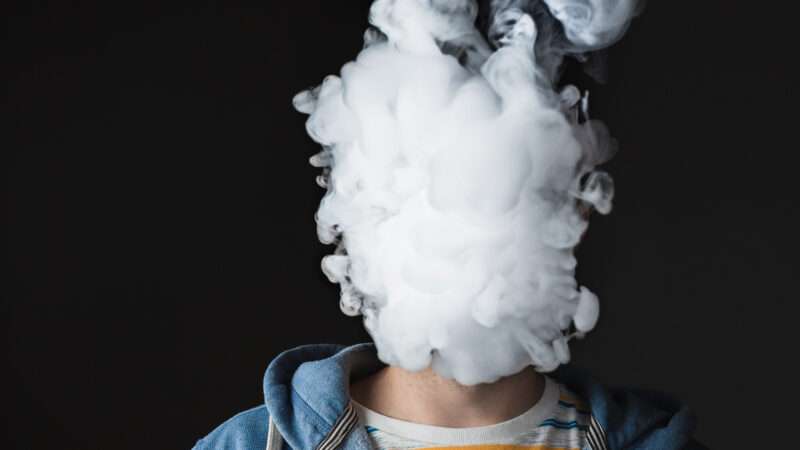
It’s been a rough couple of weeks for the vaping industry.
Last week, the Food and Drug Administration (FDA) let a deadline for authorizing vape products pass without having processed millions of pending applications—effectively making those products illegal to sell. Then on Monday, House Democrats unveiled a funding plan for their $3.5 trillion Build Back Better bill that would impose steep new excise taxes on nicotine-containing vaping liquid for the first time.
The hope is that new taxes on vaping products—alongside massive rate increases on traditional cigarettes—will bring in $96 billion in revenue while deterring people from using either.
But vape store owners, already suffering from the FDA’s regulatory onslaught, are wondering whether they’ll be able to survive the tax hike.
“This is going to more than double, and in some cases triple or quadruple, the price of liquids that I sell,” says Keith Gossett, the owner of Bucky’s Vape Shop in Columbus, Georgia.
Gossett’s most popular products are 60-milliliter bottles of vaping liquid, which come with various nicotine strengths. For a current cigarette smoker looking to transition to vaping, Gossett says he recommends liquids with 18 milligrams of nicotine per milliliter, which he sells for about $15.
Democrats’ tax bill would impose a $100.66 excise tax on every 1,810 milligrams of nicotine, adding approximately $60 in taxes to that 60-milliliter bottle of 18-milligram strength e-liquid. The bill is estimated to add about $1 to a pack of traditional, combustible cigarettes.
“I’m going to sit there and try to tell a man with a $6 pack of cigarettes that my [$75] product is better. This tax will close my shop,” Gossett tells Reason.
The competitive disadvantage that these new tax hikes would create for vape shops also poses a public health threat by encouraging people to continue smoking more dangerous combustible cigarettes.
One 2014 study published by BMJ found that a 10 percent increase in the price of e-cigarettes resulted in a 19 percent drop in sales. Another 2019 study, published by the National Bureau of Economic Research, found equalizing federal taxes on traditional cigarettes and electronic cigarettes would deter 2.75 million people from quitting smoking.
“Would-be switchers have been shown to be very price-sensitive, while cigarette smokers often continue to use even in the face of very large tax increases,” says Greg Conley of the American Vaping Association.
The new taxes would keep people smoking, he says, while creating even more uncertainty for an industry already facing the threat of regulatory extinction.
Before nicotine-containing vaping products can be legally sold in the U.S., they have to receive “premarket authorization” from the FDA. Getting the agency’s authorization is a long and expensive process that, as Competitive Enterprise Institute’s Michelle Minton notes, requires separate applications for each “product, nicotine level, flavor, and even bottle size.”
Last Thursday, a grace period during which the FDA would hold off on any enforcement action while it processed these applications ended, meaning millions of vape products available for sale today—including big brands like Juul—are being “marketed unlawfully and subject to enforcement action at the FDA’s discretion.”
In a statement last week, the FDA has said that it will focus its enforcement on companies whose products have been explicitly rejected by the agency, or who haven’t submitted applications at all.
Still, as Reason‘s Jacob Sullum wrote, “the agency, despite its promises of regulatory flexibility, is perpetuating a situation in which companies that tried to play by the rules have no idea whether they will still be in business next week, next month, or next year.”
Gossett says that one of his suppliers has already told him they were closing up shop now that the FDA’s deadline had passed.
In an attempt to route around these FDA restrictions, some vape manufacturers have started transitioning to making synthetically derived nicotine products, which are theoretically outside the agency’s powers to regulate tobacco products.
That’s an untested legal theory, however. It also wouldn’t exempt these products from the potentially fatal taxes included in the House Democrats’ bill.
“This tax is not going to deter people from using nicotine, it’s just going to turn that person from a vaper back into a smoker,” says Gossett. “This tax will not only kill my business, it will kill Americans.”
from Latest – Reason.com https://ift.tt/3lyMkvU
via IFTTT